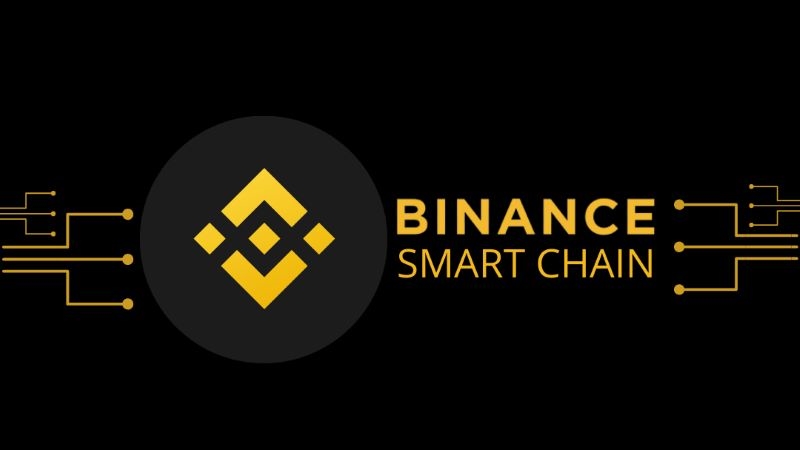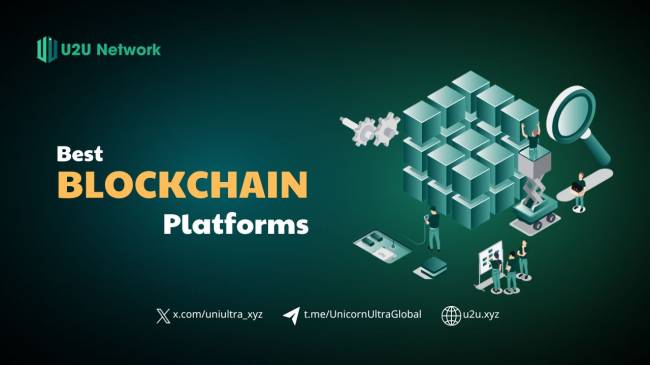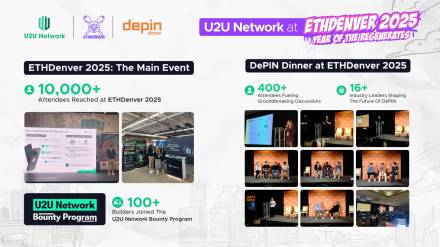The blockchain, a revolutionary technology, has captured the imagination of the world, promising a future of decentralized, transparent, and secure systems. Its potential applications are vast and continue to expand, impacting various sectors like finance, healthcare, supply chain management, and more. In this article, we will explore the top 6 best blockchain platforms, their unique features, use cases, and how they have the power to reshape the world as we know it.
Table of Contents
- Ethereum - The most popular blockchain platform
- Binance Smart Chain (BSC) - Platform with low transaction fees
- Cardano - Providing sustainable solutions
- Polkadot - Platform that allows interaction between different blockchains
- Stellar - Platform providing cross-border payments
- Tron - Platform for content creators
Ethereum - The most popular blockchain platform
Ethereum is undoubtedly one of the most popular blockchain platforms, known for its smart contract capabilities. It was created by Vitalik Buterin in 2015 and has since become the foundation for many successful projects and decentralized applications (dApps). Some of its notable features include:
Smart Contracts: Ethereum's smart contracts allow for automatic execution of agreements between two parties without the need for intermediaries. This opens up endless possibilities for industries such as real estate, insurance, and law.
Decentralized Applications: The platform supports the development of dApps, which are applications built on blockchain technology. These dApps can range from simple games to complex financial systems that run without any central authority, providing transparency and security.
.jpg)
Use Cases: Some of the most prominent use cases of Ethereum include decentralized finance (DeFi), non-fungible tokens (NFTs), and supply chain management. DeFi has seen tremendous growth on the Ethereum platform, with over $60 billion locked in various DeFi protocols. NFTs, which are unique digital assets, have also gained popularity on Ethereum, with the sale of an NFT artwork reaching a record-breaking $69 million. Additionally, companies like Walmart and FedEx are using Ethereum for supply chain tracking and management.
Binance Smart Chain (BSC) - Platform with low transaction fees
Launched in 2020, Binance Smart Chain (BSC) is a blockchain platform developed by the popular cryptocurrency exchange, Binance. It boasts high scalability and low transaction fees, making it a preferred choice for developers and users alike. Some of its notable features include:
Dual-chain Architecture: BSC operates using a dual-chain architecture, where it simultaneously supports both smart contracts and a fast, high-performance network for transactions. This allows for quick and efficient execution of smart contracts while maintaining low fees.
Cross-Chain Interoperability: BSC is compatible with Ethereum's Virtual Machine (EVM), allowing developers to easily migrate their dApps from Ethereum to BSC. This enables interoperability between the two platforms and opens up more opportunities for developers.

Use Cases: Some of the popular use cases of BSC include decentralized exchanges (DEXs), gaming, and NFTs. PancakeSwap, a leading DEX on BSC, has seen significant growth, surpassing Ethereum-based Uniswap in trading volume earlier this year. Additionally, many popular NFT projects such as CryptoBlades and MyDefiPet are built on BSC.
Cardano - Providing sustainable solutions
Cardano is a blockchain platform that was founded by Charles Hoskinson, one of the co-founders of Ethereum. It aims to provide a more sustainable and scalable solution for blockchain technology, with a focus on security and decentralization. Some of its notable features include:
Proof-of-Stake Consensus: Unlike other blockchain platforms that use Proof-of-Work consensus, Cardano uses a more energy-efficient and environmentally friendly approach called Ouroboros. This allows for faster and cheaper transactions, making it a viable option for enterprises.
Layered Architecture: Cardano's layered architecture separates the ledger into two layers, one for handling transactions and another for smart contracts. This makes the platform more flexible and modular, allowing for easier upgrades and improvements.

Use Cases: Cardano is primarily focused on providing solutions for the financial sector, with its native cryptocurrency, ADA, being used for various DeFi applications. It also has use cases in supply chain management, voting systems, and identity verification.
Polkadot - Platform that allows interaction between different blockchains
Created by one of the co-founders of Ethereum, Dr. Gavin Wood, Polkadot is a blockchain platform that aims to connect multiple specialized blockchains into one network. This allows for interoperability between different blockchains, making it easier for developers to create complex dApps. Some of its notable features include:
Interoperability: Polkadot's main feature is its ability to connect with other blockchains, known as parachains, through its Relay Chain. This enables cross-chain communication and data transfer, promoting collaboration and innovation.
Scalability: The platform uses a sharding technique to split data processing among multiple chains, allowing for higher transaction throughput and scalability. This makes Polkadot a suitable option for handling large-scale applications.

Use Cases: Polkadot's potential use cases include decentralized finance, Internet of Things (IoT), and gaming. Its interoperability feature can be beneficial in DeFi, where different protocols can communicate and share data seamlessly. Additionally, Polkadot's compatibility with IoT devices opens up opportunities for the integration of blockchain technology in various industries.
Stellar - Platform providing cross-border payments
Stellar is an open-source blockchain platform created in 2014, with the goal of providing fast and low-cost cross-border payments. It operates using a federated Byzantine agreement (FBA) consensus algorithm, making it more energy-efficient compared to other platforms. Some of its notable features include:
Fast and Cheap Transactions: Stellar claims to process transactions within 5 seconds, making it one of the fastest blockchain networks. Its transaction fees are also minimal, making it ideal for micropayments and cross-border transactions.
Anchors: Stellar uses anchors, which are entities that facilitate the exchange of cryptocurrencies for fiat currencies, making it easier to convert traditional money into digital assets. This is especially useful for individuals and businesses looking to adopt blockchain technology.

Use Cases: Stellar's focus on cross-border payments has seen it being adopted by companies such as IBM and Deloitte. It can also be used for crowdfunding, asset tokenization, and peer-to-peer lending.
Tron - Platform for content creators
Tron is a blockchain platform that aims to decentralize the entertainment industry by providing a platform for content creators to directly connect with their audience. It was founded by Justin Sun in 2017 and has since gained popularity due to its partnerships with various companies. Some of its notable features include:
High Throughput: Tron claims to process up to 2,000 transactions per second (TPS), making it one of the fastest blockchain platforms. This allows for better scalability and a smoother user experience.
Smart Contracts: Similar to Ethereum, Tron also supports smart contracts, enabling the creation of dApps for various use cases. Its focus on the entertainment industry has resulted in dApps for music streaming, gaming, and social media.

Use Cases: Aside from its focus on the entertainment industry, Tron has also been used for supply chain management, voting systems, and decentralized marketplaces.
In the ever-evolving landscape of blockchain technology, choosing the "best blockchain platforms" depends on the specific needs and goals of each individual or organization. The six platforms mentioned in this article—Ethereum, Hyperledger Fabric, Corda, EOS, Tezos, and Solana—each offer unique value and are at the forefront of shaping the future of decentralized technology.
However, the blockchain world is not limited to these familiar names. Emerging projects like U2U Network, with its groundbreaking Helios technology, are challenging current limitations and opening new horizons for the industry. With a focus on building a decentralized social network, U2U promises to deliver a unique user experience where power and benefits belong to the community.
As blockchain technology continues to advance, we can expect the emergence of even more innovative platforms. The competition among these platforms will drive innovation and refinement, ultimately benefiting users and the entire blockchain ecosystem. Whether you are a developer, business, or individual user, exploring and choosing the right blockchain platform will be key to unlocking the full potential of this decentralized technology.





.png)
